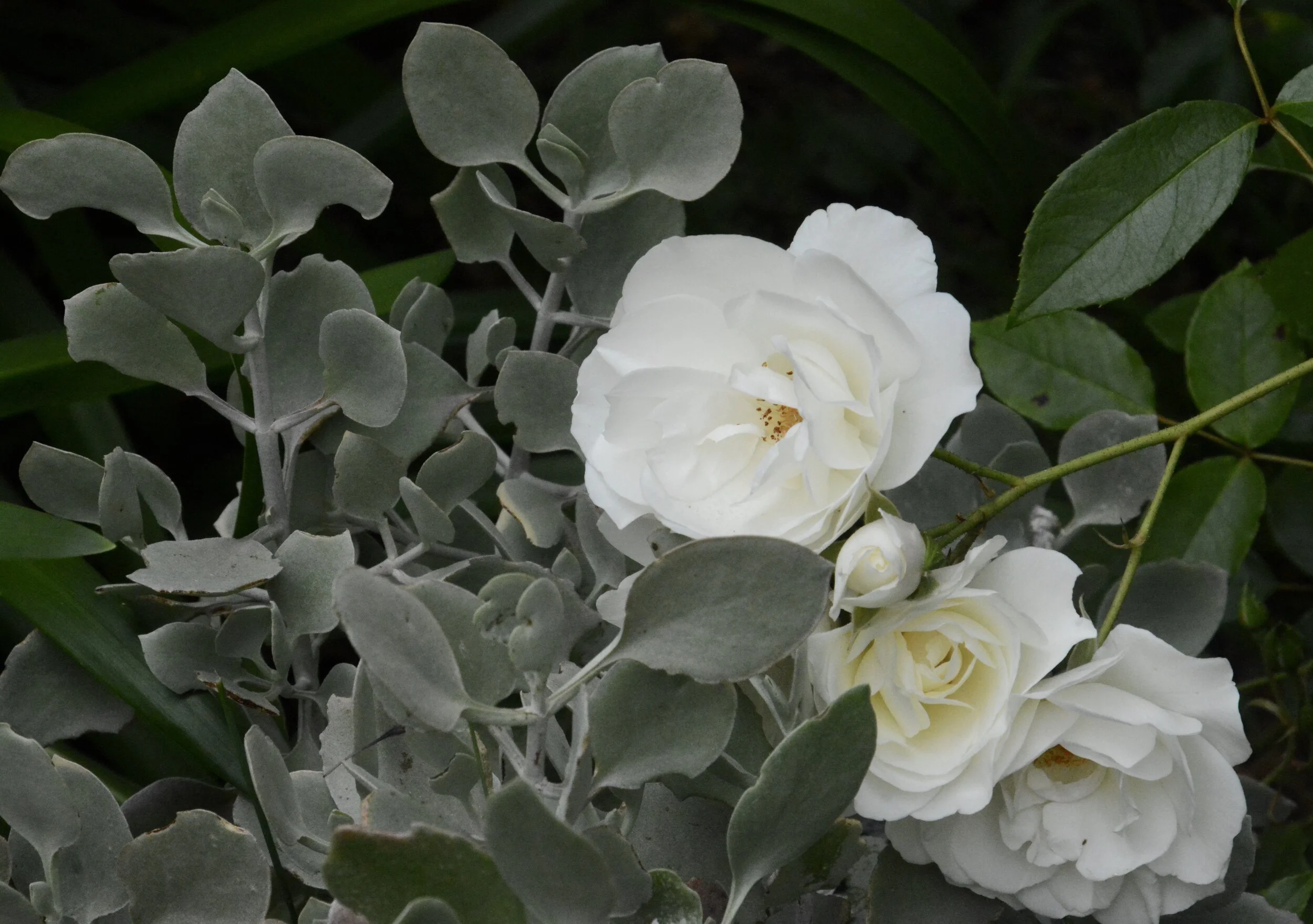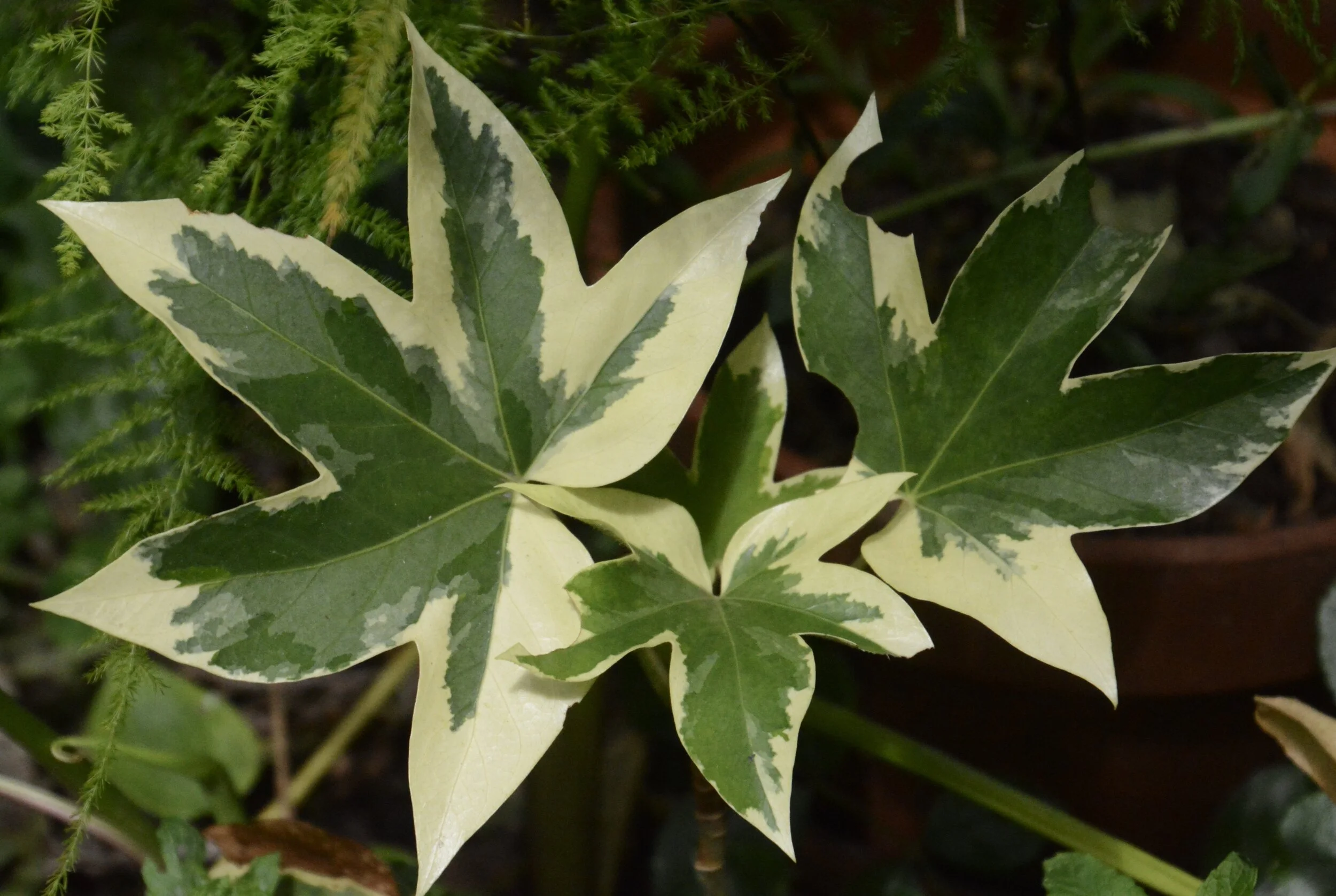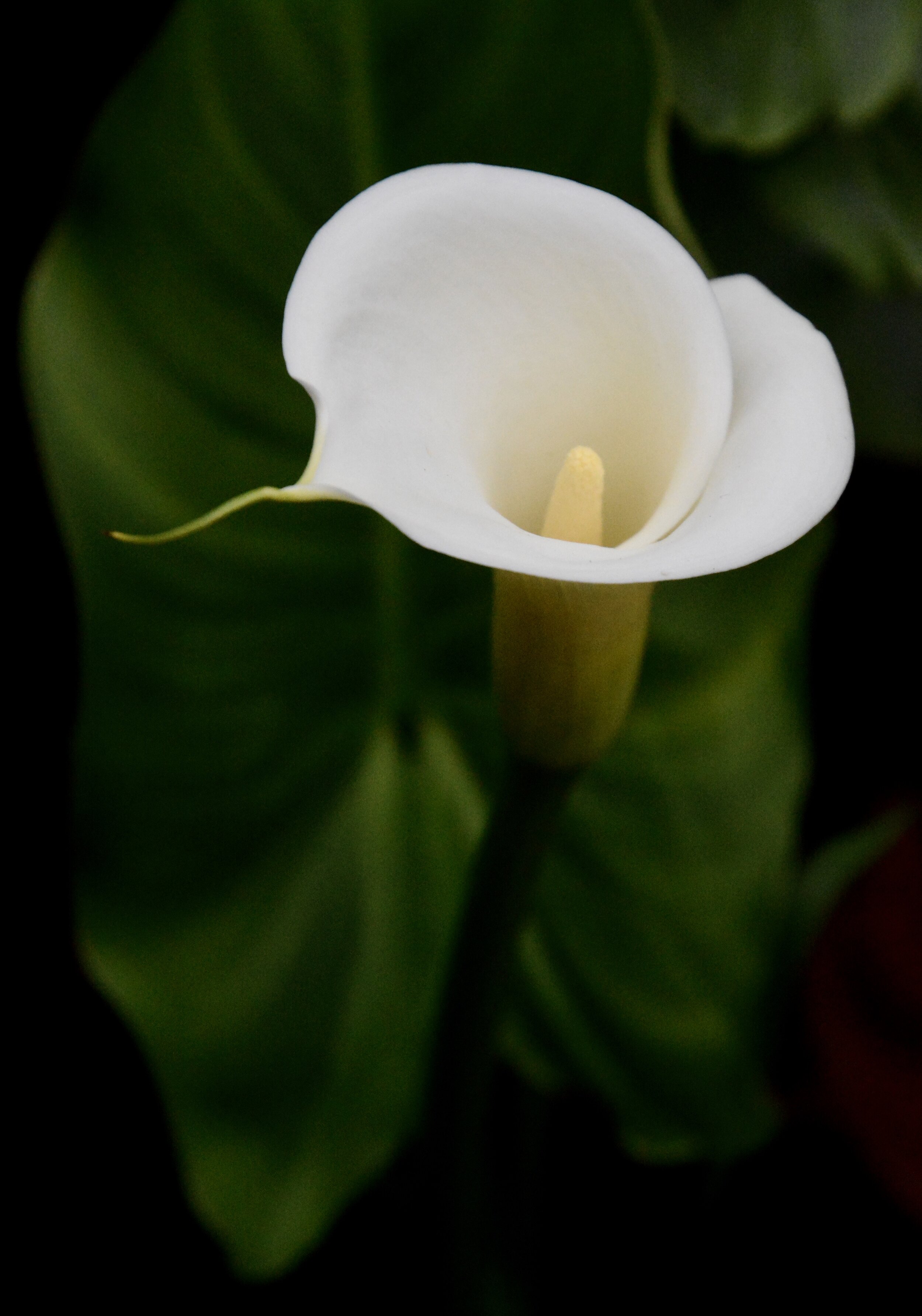One goal when building this garden from near-scratch was to pay better attention to how each plant - no matter the season - fits into its surroundings... the combination, art for a roving eye (in the past I tended to plant whatever I liked wherever it fit). I’m still an amateur garden artist, but I’m learning that some plants make odd, but complementary bedfellows, like this succulent (I don’t know its name) that I keep at a modest height to contrast with and support a rose (David Austen Iceberg Floribunda) still young enough that it bows under its own weight. The quirky juxtaposition always makes me stop and smile as I survey this corner of the garden.
I spoke with several friends this weekend about the disconnect some of us are feeling from fellow Americans whose anger continues to accelerate and increase in volume as they declare the pandemic a hoax, and demand their constitutional rights to do what, I am not clear. From this angle the attitude seems unfathomable, but as the election nears, I fear the disconnect may get even worse. Certainly, I understand the need to get back to work, and I get the economic and emotional pain this quarantine has cost. But do I? I’m guessing there are folks who’d say I haven’t got a clue. We are coming at this from such different experience and angles.
My son told me he’s been thinking a lot about my parents these days, and wishing he could ask them about their experience living in a time when there was a common understanding of the sacrifice required during World War II, and what it felt like to be a nation undivided. That reminded me that I haven't finished the story that I started here a few weeks ago about how, in truth, different perspectives existed even then.
Once the Germans surrendered, my father knew that it was only a matter of weeks or months before he got shipped off to Japan for what he called his “second half” of the war. Having survived the Battle of the Bulge, he expected to die in the Pacific. His letters home began to read more brooding and a little bitter. His initial revelation that finally he and Mom were having the same experience, were on the same page, was replaced by a growing fear that she could never understand what he’d been through.
In October of 1945, still in Europe, Dad wrote what in the mythology of our family has come to be known as THE LETTER, his final thoughts before he headed not to Japan, but home:
“And now, Carol, that my homecoming is drawing near I want to tell you something that I have felt but hesitated to say for a long while. The old saying that absence makes the heart grow fonder is in my estimation a lot of baloney. It’s been nearly two years, two years of adventure that I could not have thought of in my wildest dreams. So much has happened that I have forgotten a great deal. Mainly, I’ve forgotten more about you than I believe either of us have realized. It is a little different for you, I think. You can look out the window right now and see where we walked the campus those few years ago. You sit where I gave you my Psi pin. At home you can see where I used to sit on the couch - or where we stood when we kissed goodnight. All around… you see things and do things that sharpen your memories. At the dinner table, driving a car, or walking down the street you can picture me beside you. But [for] two years - what have I had? How can I picture you when I’m looking at the rubble of Nuremburg? Or when I’m squatting on the ground eating from a mess kit? Or those nights when I was dodging shells and standing at an outpost peering into the night for German patrols - with only the sound of machine guns, an occasional burp gun and now and then a shell whining overhead? …How can I remember just how it was to have you sitting beside me in the Chevy when all I’ve ridden for the past two years is 2 1/2 ton trucks and jeeps?
“…Everything you have done in your daily life these past two years kept your memory sharpened. But I’m afraid I’ve seen or done very little that has reminded me of you. All that I can put my finger on are a few snapshots… and letters. Did you ever sit back and try to count the number of little squabbles that we’ve sent back and forth across the Atlantic? ….I guess I’m just getting more confused than ever - but when I get back, Carol, give me time to fall in love with you again. I know that I will. But frankly, I don’t think I do love you now - not really, I mean. Not the way I should and not the way I want to… so much has happened that I have forgotten how to love.
“It is half an hour latter (sic). I’ve been sitting here on my bed trying to think how it would be if you walked into this room, in through that grey painted door with the white enameled door knob. But it’s no good. You’d never come through that door. You don’t belong in a building like this. You wouldn’t fit in this town or this country. You belong to the other side of the world - that’s where I have to picture you and there is nothing over here like it. Nothing here to remind me.
“It has taken me a long while to write this letter. The spot of sunlight that was on the edge of the bed when I began has moved across to the opposite wall …The happiness at the thought that I may soon be home is so strong, Carol, that sometimes I think I’ll explode. When I let myself think about [it]… I feel as though my heart is going to pop right out. I believe you know me better than anyone, but even you, Carol, will never know how much I’ve hated this life. My love, Lou.”
— thanks to Lauren de Moll for her meticulous and dedicated family research and transcriptions.


